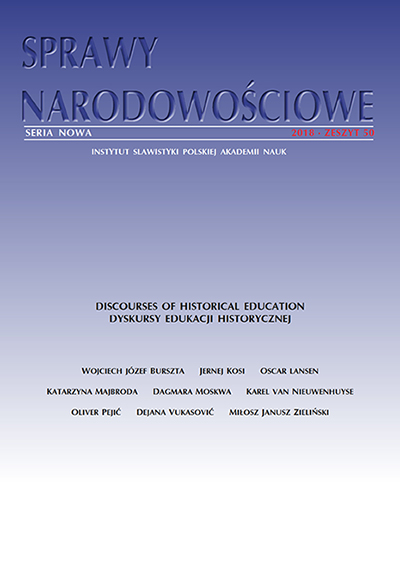History Discourses and Reconciliation Process in Post-Suharto Indonesia.
History Discourses and Reconciliation Process in Post-Suharto Indonesia.
Author(s): Katarzyna Marta GłąbSubject(s): History, Education, Politics of History/Memory, Peace and Conflict Studies
Published by: Instytut Slawistyki Polskiej Akademii Nauk
Keywords: Indonesia; 1965-66 massacres; transitional justice; reconciliation; history education; New Order; collective memory;
Summary/Abstract: After periods of internal conflicts and authoritarianism, educational institutions often have to be reformed. However, in countries where education has been used to support repressive politics and violations of human rights, or when conflicts and abuse have resulted in a loss of educational opportunities, a traumatic past and the legacy of injustice can be a serious challenge to effective educational reforms. Prospects for the development of democracy, which usually fuel the program of rebuilding the state and building a civil society, do not often attach great importance to the settlement of the brutal past in historical education. Meanwhile, the coupling of transitional justice and reform of education systems, including historical education programs, can facilitate the reintegration of society, including children and youth in the society, and may involve younger generations in work for justice. The history of 1965-66 in Indonesia, the history of mass killings and the imprisonment of hundreds of thousands of alleged communist Indonesians, was for a long time silenced and mystified by anti-communist mythology. This was created by the authoritarian rule of Suharto. This article examines how the Orde Baru constructed a strong policy of remembrance and how this narrative that labels victims as perpetrators deserving their fate dominated historical politics (history education). This approach is still present in the official historical and political narrative in Indonesia. Meanwhile, showing the history of victims in the history education can be a prerequisite for understanding the process of reconciliation by Indonesians, thus having an impact on the democratisation of society. Thus, historical education is closely connected with transitional justice.
Journal: Sprawy Narodowościowe
- Issue Year: 2018
- Issue No: 50
- Page Range: 1-14
- Page Count: 14
- Language: English

